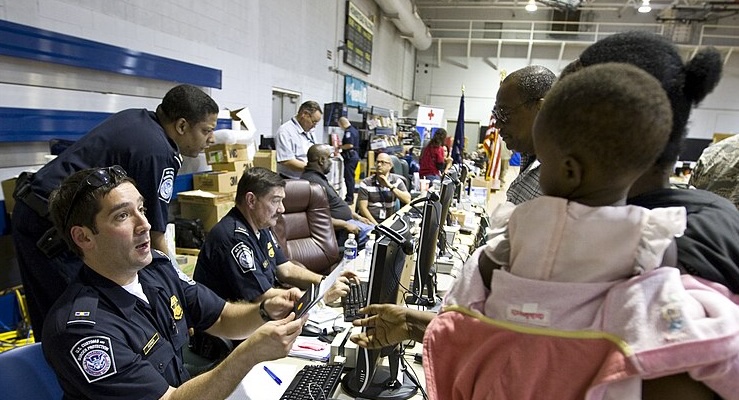Already a subscriber? Make sure to log into your account before viewing this content. You can access your account by hitting the “login” button on the top right corner. Still unable to see the content after signing in? Make sure your card on file is up-to-date.
A federal judge has blocked the Trump administration from ending deportation protections for Haitian migrants allowed into the United States under former President Biden’s extension of Temporary Protected Status (TPS).
Some shit you should know before you read: Back when President Biden was in office, he granted TPS to migrants from countries facing armed conflict, environmental disaster, or extraordinary humanitarian crises, such as Venezuela, Haiti, Nicaragua, and others. The Biden administration argued that TPS was essential to protect vulnerable populations fleeing political repression, economic collapse, and natural disasters, and it was presented as a “lawful and moral” tool to prevent forced returns to dangerous environments. The process required applicants to show continuous residence in the US by a specific cutoff date, pass background and security checks, and re-register periodically to maintain status. Critics of the program, especially some conservative lawmakers, claimed that TPS was being exploited as a backdoor to indefinite legal stay, citing repeated extensions without congressional action and arguing that it weakened immigration enforcement and encouraged unauthorized migration.

What’s going on now: In a notable development, Judge Brian Cogan ruled that Homeland Security Secretary Kristi Noem’s attempt to prematurely end TPS for Haitian migrants was unlawful. Cogan found that Noem’s February order, which sought to cut short the TPS designation granted under the Biden administration, violated the statute governing the program by attempting a “partial vacatur” without following proper legal procedures. “When the Government confers a benefit over a fixed period of time, a beneficiary can reasonably expect to receive that benefit at least until the end of that fixed period,” Cogan wrote. He noted that the DHS must follow the “statutorily prescribed procedures Congress has enacted,” and added, “Secretary Noem does not have statutory or inherent authority to partially vacate a country’s TPS designation.”
The court’s decision protects roughly 350,000 Haitian migrants currently living in the US under TPS, who would have otherwise lost their legal right to live and work in the country as early as September 2025. Cogan sided with plaintiffs who argued that shortening the protection period created severe hardship, disrupting employment, education, and access to medical care.
This comes as the Department of Homeland Security has continued to argue that the environmental and safety conditions in Haiti have improved enough to justify ending TPS. Despite this, the State Department maintains that Haiti is a “Level 4: Do Not Travel” country due to extreme gang violence.







